
Calcium Carbonate: Manufacturer’s Reliable Source and Supplier
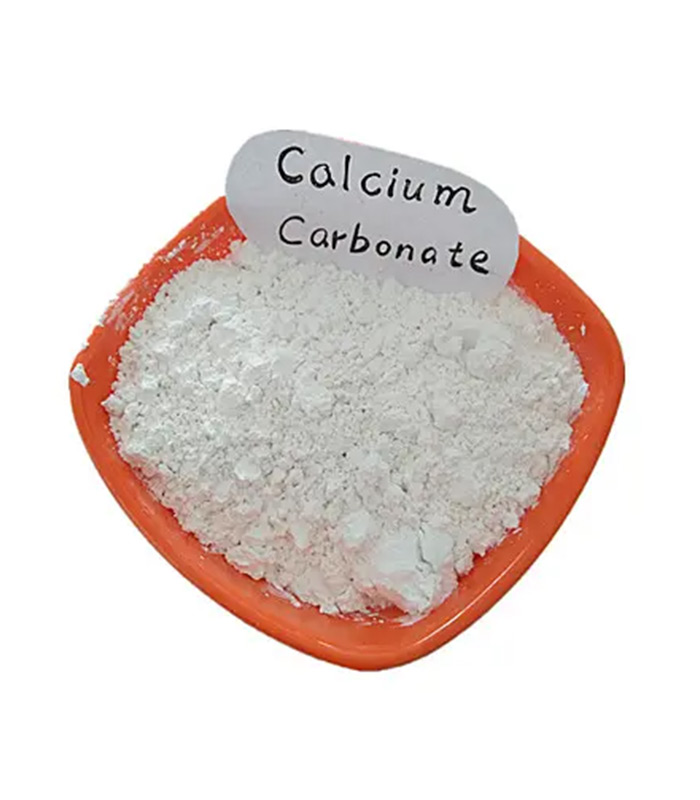
Calcium carbonate (CaCO₃) is a versatile and widely used chemical compound, recognized for its myriad applications across various industries. It is an essential raw material for manufacturers, acting as a critical ingredient in products ranging from food additives to pharmaceuticals. This essay explores the structure, properties, applications, and safety considerations of calcium carbonate, highlighting its significance as a reliable source and supplier for manufacturers.
Click to use Silvari group personal shopper services
Table of Contents
ToggleCalcium Carbonate Structure
Calcium carbonate consists of one calcium (Ca) atom, one carbon (C) atom, and three oxygen (O) atoms. Its molecular structure showcases a trigonal planar arrangement where the carbon atom is centrally located, surrounded symmetrically by three oxygen atoms. This configuration contributes to its stability and makes it a fundamental component in many chemical reactions.
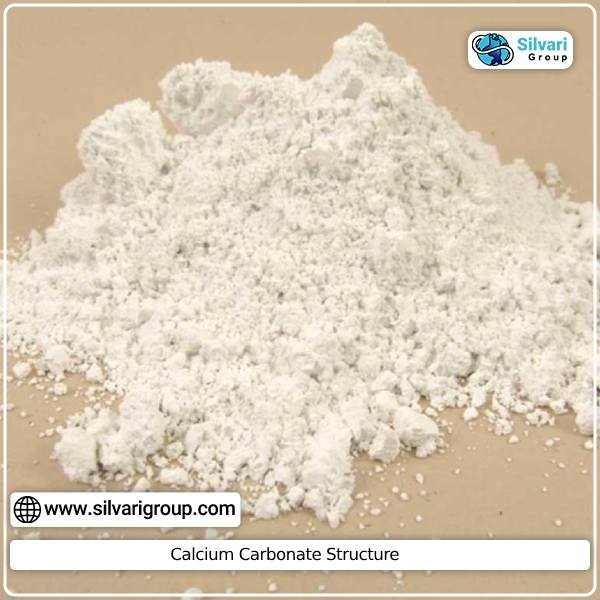
Calcium Carbonate Formula Formation
The chemical formula for calcium carbonate is CaCO₃. This compound can form through several natural processes, including the precipitation of calcium ions and carbonate ions in aqueous environments. Additionally, calcium carbonate is derived from sedimentary rock formations, such as limestone and marble, which have accumulated over millions of years.
Click to buy citric acid from Silvari group
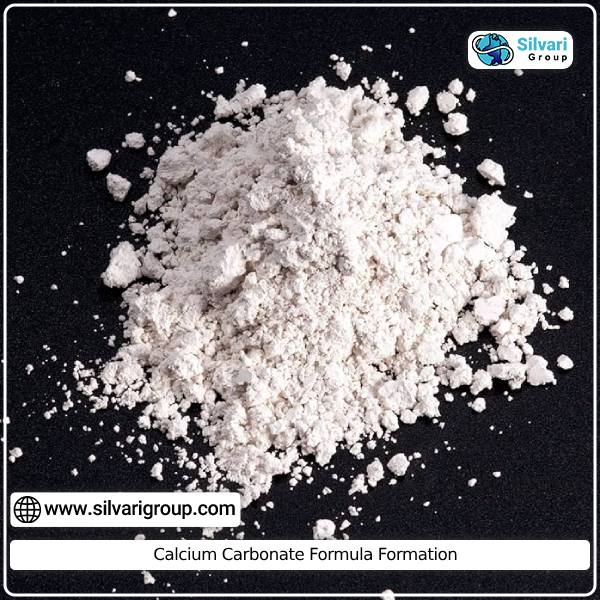
Chemical and Physical Properties
Calcium carbonate is characterized by several key physical and chemical properties:
- Solubility: It is relatively insoluble in water but reacts with acids to release carbon dioxide gas.
- Appearance: Calcium carbonate typically appears as a white powder or crystalline solid.
- Molecular Weight: The molecular weight of calcium carbonate is approximately 100.09 g/mol.
Click to buy antique products from Silvari group
These properties make calcium carbonate suitable for diverse applications, particularly in industries where acid-base reactions are relevant.

Spectral Information
In the realm of spectral analysis, calcium carbonate exhibits distinct absorption bands in its infrared (IR) spectrum, primarily due to the presence of carbonate ions. The absorption peaks at approximately 875 cm⁻¹ and 1420 cm⁻¹ correspond to the bending and stretching vibrations of the carbonate group, respectively. This spectral information aids in the identification and characterization of calcium carbonate in laboratory settings.
lick to buy industrial products from Silvari group
Calcium Carbonate Powder
Calcium carbonate is often processed into a fine powder form, which enhances its usability in various applications. The powder is produced through crushing, grinding, and classifying natural calcium carbonate rocks. This fine powder can be easily mixed with other materials, making it ideal for manufacturing paints, coatings, and plastics.
Surfaces, Chemistry, and Applications
Calcium carbonate’s surface chemistry plays a crucial role in its applications. Its surfaces can interact with various substances, influencing its performance in different formulations. Key applications of calcium carbonate include:
- Construction Industry: Used as a filler in cement and concrete.
- Paper Industry: Serves as a brightening agent and filler.
- Food Industry: Functions as a calcium supplement and food additive.
- Pharmaceuticals: Acts as an antacid and calcium source in various medications.
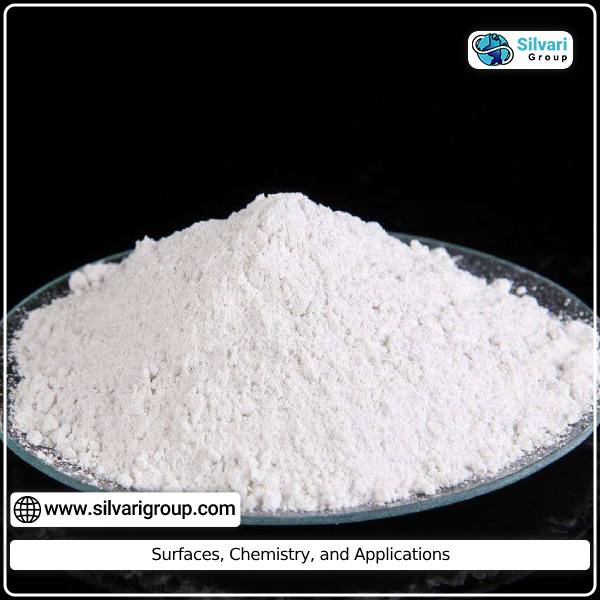
Drug and Medication Information
In the pharmaceutical sector, calcium carbonate is commonly utilized as an active ingredient in antacid formulations, providing relief from heartburn and indigestion. Its ability to neutralize stomach acid makes it an effective treatment option. Additionally, calcium carbonate is used as a dietary supplement, ensuring adequate calcium intake for bone health.
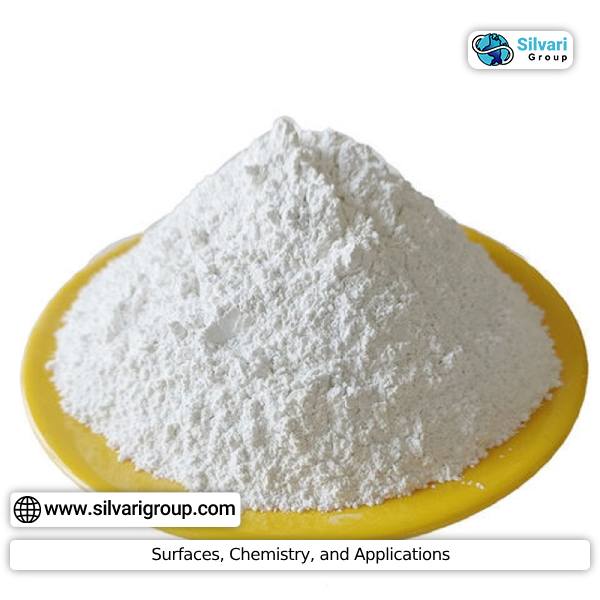
Food Additives and Ingredients
Calcium carbonate is recognized as a safe food additive, often labeled as E170 in Europe. It serves multiple purposes, including acting as a firming agent, color stabilizer, and calcium fortifier in food products. Its neutral flavor and stability make it a preferred choice for enhancing the nutritional profile of various foods.
Agrochemical Information
In agriculture, calcium carbonate is employed to amend acidic soils, improving soil pH and enhancing nutrient availability. It also serves as a calcium source for plants, promoting healthy growth and development. Its use in agrochemicals underscores its importance in sustainable agricultural practices.
Pharmacology and Biochemistry
From a pharmacological perspective, calcium carbonate plays a vital role in biochemical processes. It is involved in cellular signaling pathways and contributes to the structural integrity of bones and teeth. Understanding its biochemical functions is crucial for developing effective treatments for calcium deficiency-related disorders.
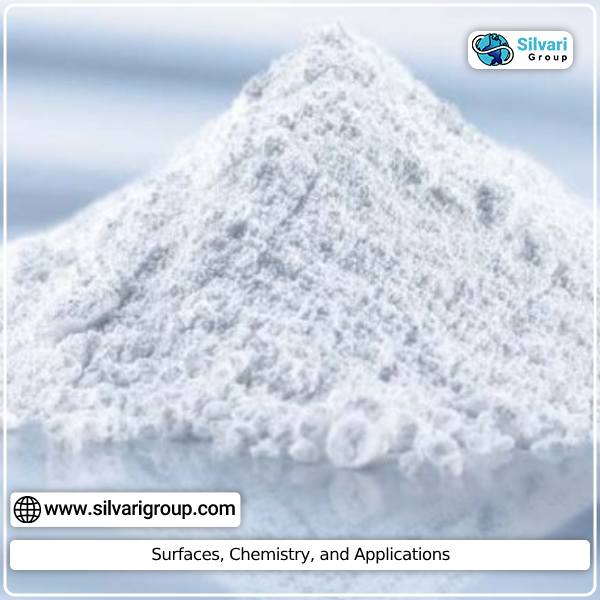
Use and Manufacturing
The manufacturing of calcium carbonate involves mining natural deposits, followed by various processing techniques to achieve the desired particle size and purity. Quality control measures ensure that the final product meets industry standards for different applications. Reliable manufacturers provide consistent quality, making calcium carbonate a dependable ingredient in numerous sectors.
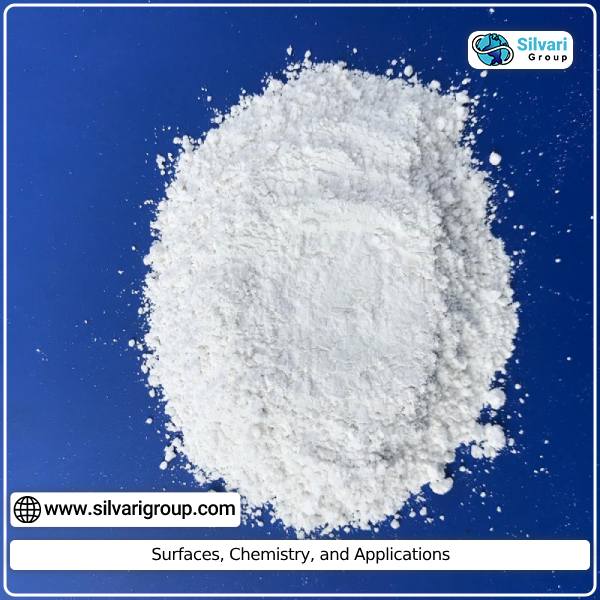
Identification
Identifying calcium carbonate in laboratory settings typically involves various analytical techniques, including titration, infrared spectroscopy, and X-ray diffraction. These methods confirm the compound’s purity and help detect impurities that may affect its performance in applications.
Safety and Hazards
Calcium carbonate is generally regarded as safe for use in food and pharmaceutical applications. However, inhalation of fine particles can irritate the respiratory system. Proper handling and adherence to safety guidelines are essential to mitigate risks associated with exposure.
Toxicity
Calcium carbonate is non-toxic when used appropriately. However, excessive consumption may lead to health issues, including hypercalcemia. It is important to adhere to recommended dosages, especially in supplement formulations.
Associated Disorders and Diseases
Deficiencies in calcium can lead to various health conditions, such as osteoporosis and rickets. Incorporating calcium carbonate into diets can help prevent these disorders, ensuring sufficient calcium levels for optimal health.
With Silvari Delivery: When You Need It, Where You Need It
The Silvari Group understands the importance of timely delivery for manufacturers and consumers alike. With a reliable supply chain, we ensure that calcium carbonate and other essential products are delivered promptly to meet your needs, regardless of location.
Our Core Values and Mission
At Silvari Group, our mission is to provide high-quality products and unparalleled service to our clients. We prioritize sustainability, transparency, and innovation in our operations, fostering strong partnerships with manufacturers and suppliers.
Conclusion
Calcium carbonate is a critical ingredient in numerous industries, serving as a reliable source for manufacturers worldwide. Its diverse applications, coupled with its safety and efficacy, make it an essential component in food, pharmaceuticals, construction, and agriculture.
FAQs:
- What is calcium carbonate used for?
Calcium carbonate is used in construction, food, pharmaceuticals, and agriculture. - Is calcium carbonate safe for consumption?
Yes, it is considered safe when used as directed, particularly as a food additive or supplement. - How is calcium carbonate produced?
It is produced by mining natural deposits and processing them into powder form. - Can calcium carbonate help with digestive issues?
Yes, it acts as an antacid, providing relief from heartburn and indigestion. - What are the environmental benefits of using calcium carbonate in agriculture?
It helps improve soil pH and nutrient availability, promoting sustainable farming practices.
Calcium carbonate, a versatile chemical compound, plays an indispensable role in numerous industries and laboratories. Known by its chemical formula CaCO3, it is a naturally occurring mineral that can be found in various forms, such as limestone, marble, and chalk. This compound is also synthetically produced for commercial and industrial use. Calcium carbonate is renowned for its exceptional versatility, owing to its diverse applications, making it an essential raw material for a multitude of industries and research laboratories.
Calcium carbonate boasts several noteworthy features that make it an invaluable substance in the world of manufacturing and research:
- Purity: High-quality calcium carbonate is characterized by its exceptional purity, ensuring minimal impurities and contaminants. This purity is crucial for its successful application across various sectors.
- White Pigment: Calcium carbonate is a widely used white pigment in the paint, paper, and plastics industries. Its ability to enhance opacity and brightness in products like paints, coatings, and paper is highly valued.
- Abrasion Resistance: It offers excellent abrasion resistance, making it a popular choice for applications where wear and tear are concerns. This property is particularly useful in the manufacturing of rubber and plastics.
- Particle Size Control: Manufacturers can manipulate the particle size of calcium carbonate to suit their specific requirements, allowing for a high degree of customization in various applications.
- Chemical Inertness: Calcium carbonate is chemically inert, ensuring it does not react with many chemicals, making it ideal for neutralizing acidic solutions.
- Cost-Effectiveness: It is a cost-effective option for enhancing product properties in a wide range of industries.
Calcium carbonate is available in several forms, each tailored to meet the unique needs of different industries. The main types include:
Ground Calcium Carbonate (GCC):
Ground calcium carbonate is produced by crushing and grinding natural limestone, marble, or chalk. It is commonly used in industries like construction, paints, and coatings.
Precipitated Calcium Carbonate (PCC):
Precipitated calcium carbonate is synthetically produced through a chemical reaction. It is favored for its fine particle size and is widely used in the paper, rubber, and plastics industries.
Nano Calcium Carbonate:
This ultra-fine form of calcium carbonate offers even smaller particle sizes and increased surface area. Nano calcium carbonate is utilized in advanced materials and high-tech applications.
Oyster Shell Calcium Carbonate:
Made from oyster shells, this type of calcium carbonate is rich in minerals and is often used in animal feed and dietary supplements.
Benefits:
The utilization of calcium carbonate extends across a multitude of industries due to its numerous benefits:
- Enhanced Whiteness: In the paper and paint industries, calcium carbonate improves whiteness and opacity, reducing the need for more expensive additives.
- Reinforcement: It provides excellent reinforcement properties when used in plastics, rubber, and construction materials, enhancing product durability.
- Cost Savings: Calcium carbonate is an economical alternative to other additives, reducing production costs.
- Acid Neutralization: Its ability to neutralize acidic solutions makes it invaluable for waste treatment and soil conditioning.
- Versatility: Calcium carbonate is versatile, adapting to a wide range of applications, from pharmaceuticals to food production.
- Environmental Friendliness: Its natural origin and eco-friendly properties make it a sustainable choice in various industries.
Applications in Different Industries:
- Construction Industry:
- Calcium carbonate is used as a filler in the production of concrete, where it enhances strength and reduces costs.
- In the manufacturing of paints and coatings, it acts as a white pigment, improving opacity and brightness.
- Paper and Pulp Industry:
- Calcium carbonate is a key component in papermaking, contributing to improved paper quality and cost-efficiency.
- Its use in paper coating enhances surface properties and printability.
- Plastics Industry:
- In plastics, it functions as a reinforcing filler, strengthening the final product.
- Calcium carbonate is used in plastic pipes, profiles, and film production.
- Rubber Industry:
- It reinforces the structure of rubber products, increasing wear resistance and tear strength.
- Rubber footwear, conveyor belts, and automotive components benefit from its use.
- Pharmaceutical Industry:
- In the pharmaceutical sector, calcium carbonate is employed as an antacid to relieve heartburn, acid indigestion, and upset stomach.
- It is also used in the formulation of calcium supplements.
- Food Industry:
- As a food additive (E170), it acts as a food coloring agent and a calcium source.
- Calcium carbonate is used to adjust the pH of various food products.
- Environmental Applications:
- In wastewater treatment, it helps neutralize acidic effluents and reduce heavy metal contamination.
- Soil conditioning and remediation utilize calcium carbonate to enhance soil quality.
- Agriculture:
- Calcium carbonate is added to animal feed to supplement calcium and enhance eggshell quality.
- It can also be used in agriculture to improve soil pH, ensuring optimal nutrient availability for plants.
- Laboratory Applications:
- In research laboratories, calcium carbonate is employed in various chemical reactions as a neutralizing agent and pH buffer.
- Its high purity ensures accurate results in scientific experiments.
Product Category:
Calcium carbonate falls under the category of inorganic chemical compounds. It is a mineral substance widely recognized for its extensive applications in diverse industries. This product category encompasses a range of chemical materials used for their physical and chemical properties, making them essential for manufacturing processes and laboratory research.
In conclusion, calcium carbonate stands as a versatile, cost-effective, and environmentally friendly compound that serves as a cornerstone in multiple industries and research laboratories. Its myriad benefits, purity, and customizable forms make it a valuable asset for manufacturers and scientists alike. Whether it’s enhancing the strength of construction materials, brightening paper products, or neutralizing acids in laboratory experiments, calcium carbonate is an essential ingredient for innovation and progress across various sectors. Its adaptability and eco-friendly characteristics make it a trusted companion in the world of manufacturing and scientific discovery.
